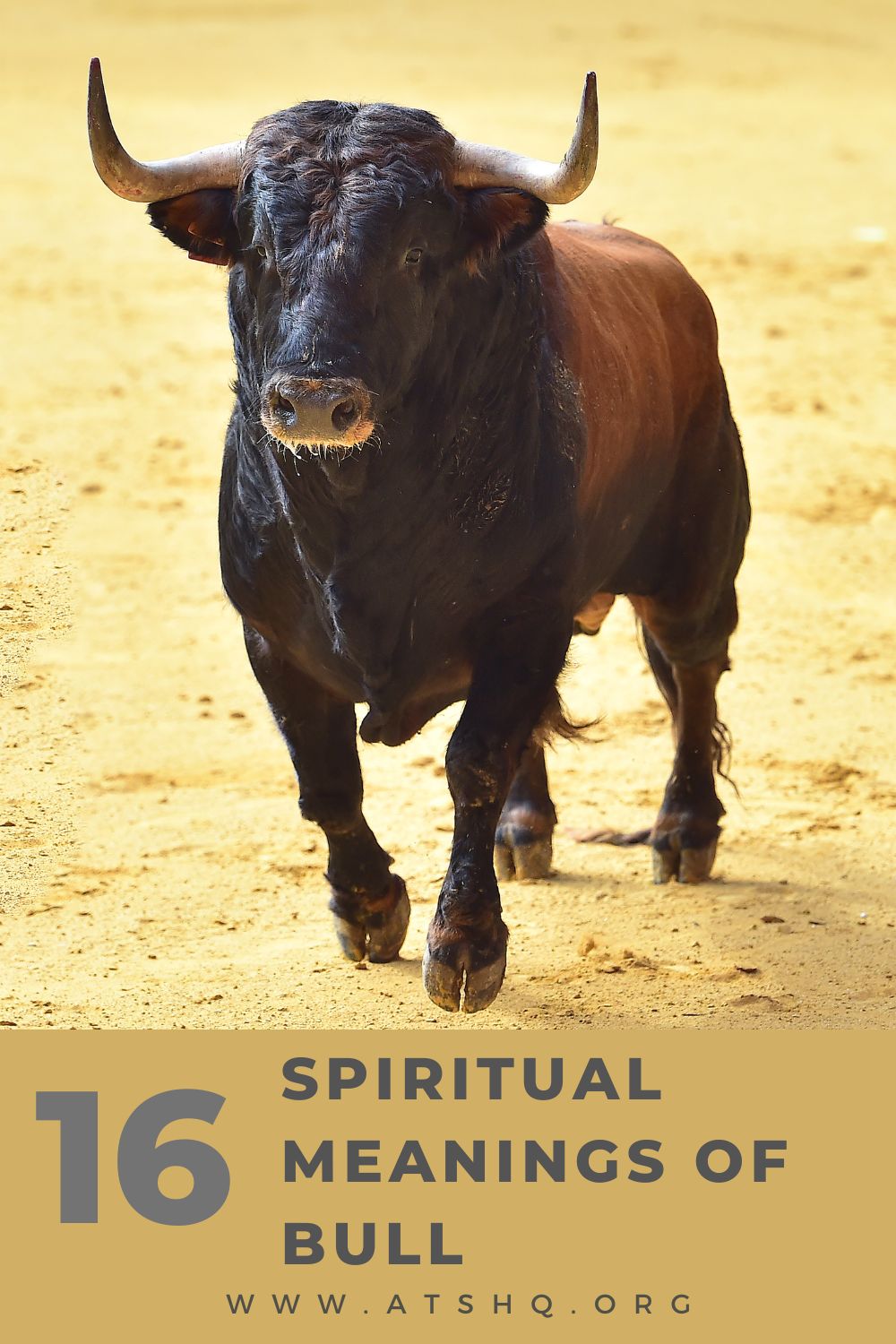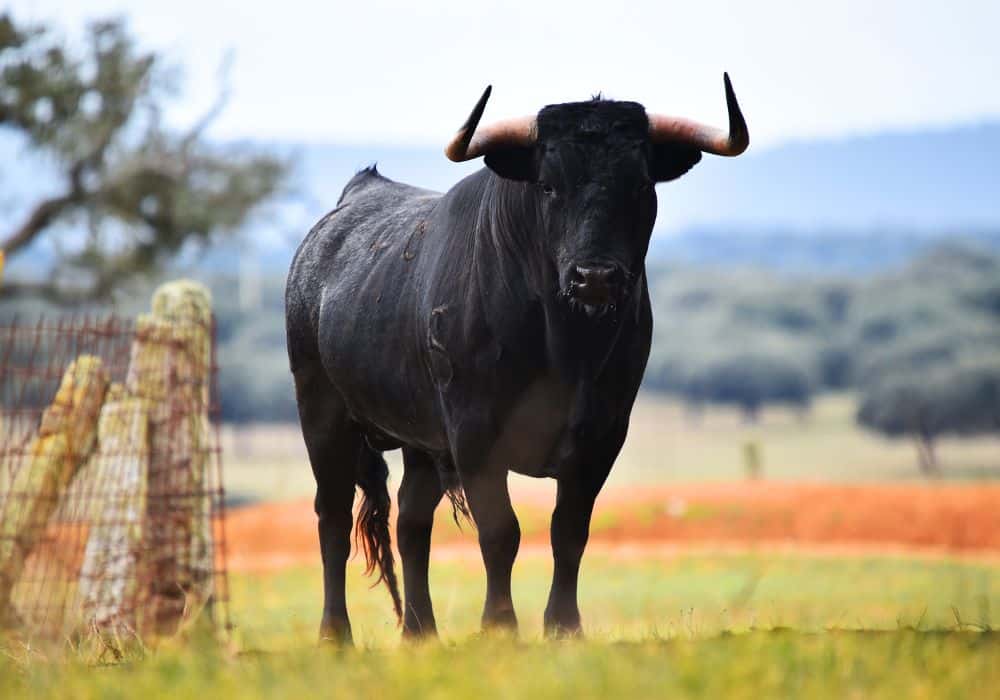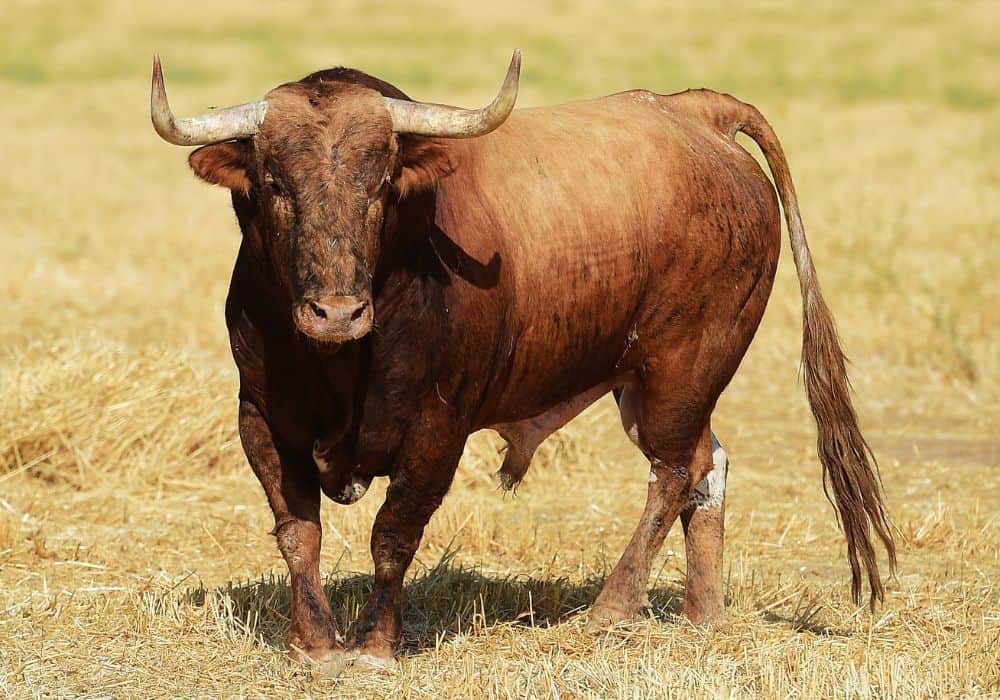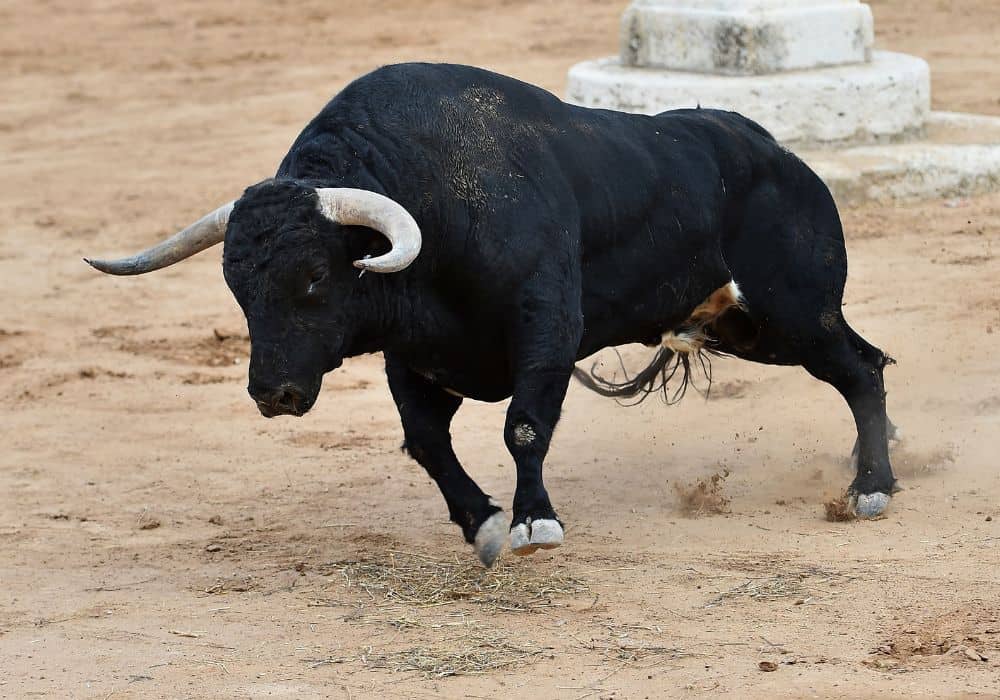If you’ve ever been on a farm, it’s likely you’ve seen a bull. These beautiful creatures have been interacting with mankind for centuries, and since the relationship between man and bull has been formed over hundreds of years, bulls are symbolic to many different cultures in a variety of ways.
In this article, I take a look at bull symbolism across cultures to see how bulls are viewed around the world. Many cultures associate bulls with the same traits, though there are variations. Understanding how a culture views the bull can help one understand how that culture views life in general.
1. What Traits Are Associated With Bulls?
1. Determination & Perseverance
Bulls are often associated with determination and perseverance because they’re the kind of animal that just doesn’t give up. When they set their mind to something, they’re going to reach that goal no matter what. They persevere even when the presented task is a difficult one.
One reason why successful bull-riding is admirable is that it’s essentially a human overcoming the strong will and determination of a bull, which is no easy task. And think about bullfighters in the ring; the bull will keep charging the matador until one of them is incapacitated or dead.
2. Strength
The bull is often associated with strength as well. In ancient religious literature and art, the bull is depicted as strong. In fact, a bull totem would be placed in front of palaces and temples as a symbol of protection—a guard that was there to ward off negative spirits.
3. Fertility
Bulls are also associated with fertility because of the Taurus constellation which links them to abundance and replenishment. Bull fertility is specifically associated with men. Both toads and bulls symbolize fertility, which one might see as odd given how different these creatures are.
4. Stubbornness
Bulls are also associated with stubbornness because if they don’t want to do something, they won’t—they’ll dig their feet in and resist with everything they have. While some view stubbornness as a negative quality, it can be a positive trait, like during decision-making.
5. Helpfulness
Bulls are also associated with helpfulness. They can do hard labor in the fields, and when they die they provide lots of meat and hide. A bull’s helpfulness in both life and death is mainly why humans have been keeping them as livestock for centuries.
2. What Does It Mean if a Bull Is Your Spirit Animal?
If the bull is your spirit animal, this could mean you’re stubborn. Having the bull as a spirit animal may also mean you don’t give up easily and you always want to help others before you help yourself. Someone with the bull as a spirit animal is also strong and it doesn’t take much for them to regain strength.
You may also be humble, as your strength is natural and not something you have to embellish. In general, if you can call the bull spirit animal your own, it’s likely you’re powerful, generous, and fired with a determination that just won’t quit.
3. What Does the Bull Symbolize in Native American Culture?
In ancient Native American culture, the buffalo and bison were thought of as bulls. This is because Native Americans did not have access to European cattle until the Age of Exploration when colonists from Europe brought them over as livestock.
Still, it makes sense that ancient Native Americans called buffalo and bison bulls, considering all three animals are part of the bovine family. One famous Native American leader was Sitting Bull, whose name came from his great strength, stoicism, wisdom, and unrelenting determination.
Buffalo herds were important because they were a major source of food for the ancient Native Americans, and the people viewed a large number of bulls around them as evidence that divine beings put them there as a food source. This explains why bulls were totem animals.
To the ancient Native Americans, hunting this beast and using all its meat, hide, and bones for sustenance was a way of showing respect for the earth. And for a warrior, bringing down a massive bison showed great strength, fortitude, cunning, and determination.
4. What Does the Bull Symbolize in Eastern Cultures?
In the Chinese zodiac, the ox is the second animal because it lost the Jade Emperor’s race to the rat. In Chinese mythology, oxen represent diligence, determination, stability, hard work, responsibility, duty, and service.
Like the Native Americans, the ancient Chinese honored oxen for all the help they provided, and they lived in harmony with these animals, both in the countryside and in cities. Oxen were also seen as symbols of sacrifice and virility.
One legend in Chinese culture has it that an ox stole magical seeds from the Jade Emperor’s barn and cast them down to the earth. When humans started collecting and planting seeds, the Jade Emperor punished the oxen by making them forever subservient to mankind.
5. What Does the Bull Symbolize in Christianity?
The ox is a significant animal in the Bible, one that’s associated with absolution and renewal of life through sacrifice. And throughout the four Gospels, the ox is one of the symbols of Jesus Christ.
Additionally, in Deuteronomy 14:4-5, the ox is referred to as “pure” and therefore clean enough for human consumption.
6. What Does the Bull Symbolize in Judaism?
The ancient Hebrews saw the bull as a protector, not only of themselves but of their families. Ancient Hebrews also put large bull statues that featured powerful horns in front of houses of worship.
7. What Did the Bull Symbolize in Ancient Greece?
In Greek mythology, the bull represents fertility. The bull is also associated with the Tyre princess, Europa, for she was courted by Zeus while he was in bull form and would later give birth to three of his children.
As a sign of fertility, the bull was also associated with procreation. The greeks often featured bulls in their artwork and architecture, and bull statues would be worshiped by women who were hoping to become pregnant. And the bull constellation, Taurus, gets its name from Greek mythology.
8. What Does the Bull Symbolize in Hinduism?
In Hinduism, the bull is very important, so much so that it’s nearly impossible to count how many times it’s mentioned in Hindu scriptures.
The celestial bull is called Nandi, and it guards the three major gods of Hinduism. Even today, you won’t find a Shiva temple that doesn’t have Nandi out front on guard.
9. What Does the Bull Symbolize in African Cultures?
In many African cultures, the bull is synonymous with power, luxury, and wealth. In one part of Southeastern Africa, the Zulu value the bull immensely because of its economic value and spiritual importance.
Up north in Sudan, the Dinka tribe, a tribe of traditional herders, relies on cattle to sustain their way of life, which explains why these animals are valued and respected.
10. What Does the Bull Symbolize in Celtic Culture?
The Celts also associated bulls with fertility and strength, and like many African cultures, they were seen as a sign of wealth too. In fact, Celtic druids would perform rituals involving bull statues and icons to help individuals who were seeking great wealth.
11. What Does It Mean if You See a Bull in Your Dreams?
When you see a bull in your dream—especially if you’re trying to grab hold of it—this could be a sign that you’re trying to take control of your life. Additionally, someone who dreams about a bull may be inclined to work hard afterward.
If you’re dreaming about a bull on a farm or in a field, such could be a sign that you’re seeking tranquility. You may need to take a step back from life and focus on the things that matter. If you’re fighting a bull in your dreams, this could mean you’re avoiding responsibilities or ignoring something that deserves your attention.
Being the bull in a dream could mean you have a goal and it’s taking you a while to reach it; you may feel like you’re running into a wall and getting nowhere. If you see a sad bull, this could be a sign that you’re lonely or looking for a way to release sadness.
Lastly, if you feel like you’re not getting the same amount of attention that you give, you may see a baby bull in your dreams.
FAQ:
1. What do bulls symbolize in astrology?
In astrology, the bull constellation Taurus is one of the 12 zodiac signs. From May 14 to June 19, the sign faces the sun, and this period is often seen as a time for renewal.
People born during this time are said to have extreme willpower. Moreover, you may react calmly to intense situations as a Taurus. However, while you’re peaceful most of the time, you can get angry easily.
2. What did the bull represent in Sumerian culture?
Like other ancient cultures, the Sumerians saw the bull as a sign of protection. This is why bull statues were placed at the entrances of temples. Also, their two main gods, Enlil and Enki, were both referred to as the “Great Bull.”




